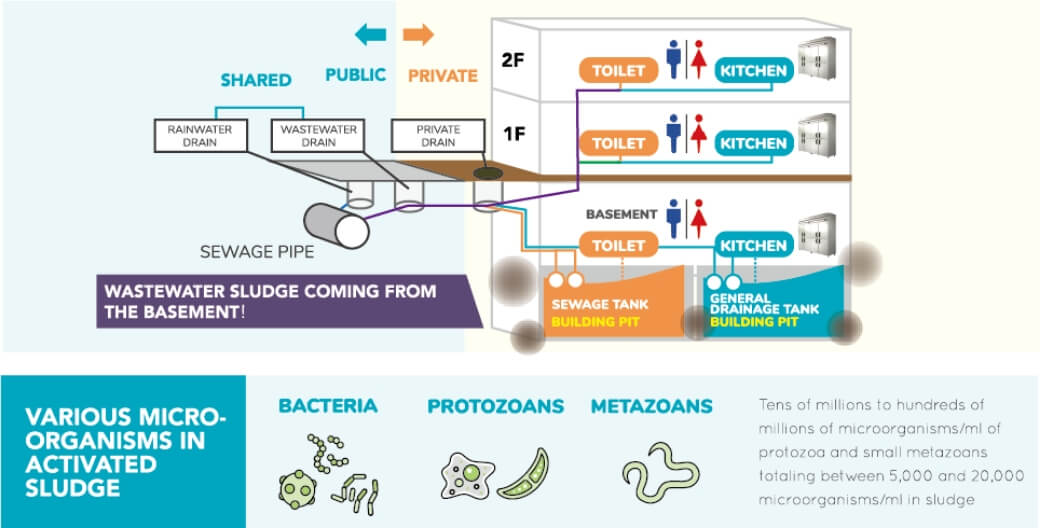
The potential of microorganisms
Our main business is waste treatment to detoxify highly concentrated sludge generated from wastewater in urban areas. Sludge generated from wastewater occurs everywhere, but we mainly deal with what is generated from restaurants and other eating establishments, as well as from wastewater from industries spread all over Tokyo. Wastewater contains organic matter generated from people's everyday urban life. The core of our purification process for wastewater sludge is microorganisms. We have been researching and learning about microorganisms since 1989, when we started this part of our business. Our initial goal was to improve the efficiency of sludge treatment. However, the microorganisms we developed had the ability to quickly and effectively process the complex and diverse organic matter contained in sludge. After observing their effectiveness in breaking down organic matter in the soil and converting it into what plants could easily absorb, we shifted the direction of our business to the agricultural field. Although its effectiveness in the agricultural field was quickly confirmed, the original Tokyo 8, which was made from sludge through recycling technology, was not well accepted in the agricultural field at that time. In fact, at the same time, there were many problems in the agricultural sector due to improper disposal of waste. A major example is the dioxin problem in Tokorozawa City, Saitama Prefecture. There is a history of illegal burning of fields and other illegal activities where local farmers have suffered enormous damage. On a different note, there have also been numerous problems with food mislabeling.
13 years of ensuring safe and reliable products
The credibility of waste-derived products is therefore low, and no matter how excellent the effect, the fertilizer registration "sludge fermentation "fertilizer" at that time did not attract the interest of farmers. Therefore, we made a series of improvements to ensure the safety and credibility of Tokyo 8, and in 2019 we succeeded in improving the production flow. We succeeded in separating the sludge and switched to a culture using biomass that can be used in organic agriculture, and this allowed us to change the registration from sludge fermented fertilizer to regular fertilizer.
Furthermore, in the spring of 2022, after three years of work, we completed the registration of our organic JAS materials, thus completing a biostimulant that can be used in any type of agriculture.
In fact, it has been 34 years since we started sludge treatment and 13 years since we tried to apply Tokyo 8 to the agricultural field. Now, the environment surrounding the agriculture industry has come to require changes in terms of both cost and added value, such as the soaring prices of chemical fertilizers and the need for agricultural products to be competitive in overseas markets.
